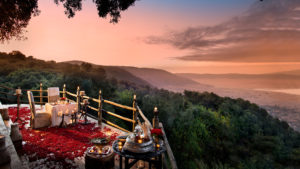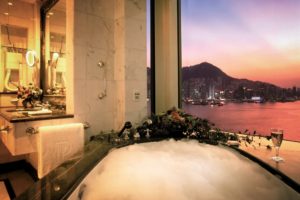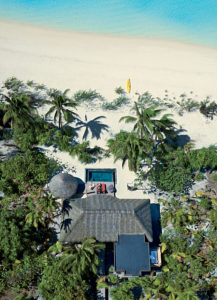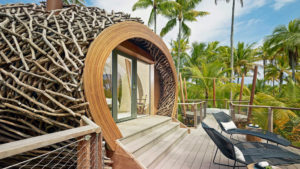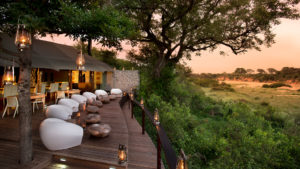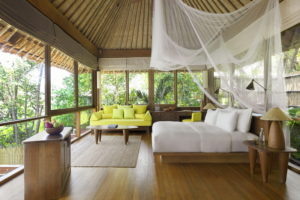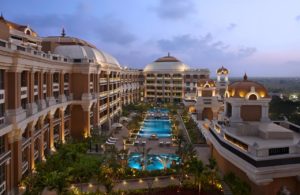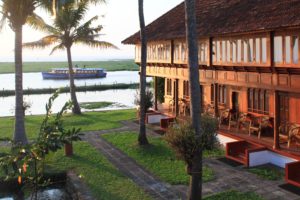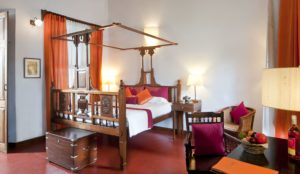From the uber-chic, The Peninsula Hotels to India’s eco-resorts icon, CGH Earth, these luxurious getaways have reinvented the green game.
Are you one of those who believe that luxury hotels, or green-tinged (and we aren’t talking dollars here) holidays, and sustainability don’t go together? You may be surprised to know that, increasingly, the world is talking about sustainable luxury, especially in context of hotels and travel.
The bedrocks of sustainable tourism are three-fold: hiring of local staff, protecting of a destination’s culture heritage, and recycling and reusing local natural resources. Here’s how some of the biggest luxury hotel and travel brands are doing it.
The Peninsula, Hong Kong
The Peninsula Hotels: Locally harvested seafood
Among the world’s biggest luxury hotel groups is The Peninsula Hotels, and over the last year or so, this storied hotel group, with a 150-year-old heritage and history, has followed the path of sustainability with some amount of vigor.
The hotel group works with World Wildlife Fund to create unique sources of seafood, for instance. Just recently, they added ‘Naturally Peninsula’, a range of dishes focusing on nutritious cuisine using seafood that’s sourced from locally harvested sources.
The Peninsula, Paris
The hotel, in fact, has launched the HSH Sustainable Luxury Vision 2020 that puts sustainability at the core of the brand’s business model. Their emphasis is on conserving natural marine sources, and avoiding over fishing, which is killing several species of marine animals. Florian Trento, Group Executive Chef, The Peninsula Hotels, says, “We want our guests to focus on what we have put on the menu, by making it innovative. The idea is to not let them notice the unsustainable options that we have removed from the menu.”
The Brando: LEED certified
The Brando
The Brando, situated on the private island of Teti’aroa, in the French Polynesia, was inspired by Marlon Brandon’s vision to promote sustainable tourism. Today, it is LEED Platinum certified, the highest certification for green buildings.
The Brando
At The Brando all energy is renewable, thanks to the abundant South Pacific sunshine, which makes it easy to produce copious amount of sustainable luxury. The hotel also has a biofuel power station fueled by coconut oil. The air-conditioning is run on seawater, which harnesses cold ocean water. The water in the toilets is all rainwater, collected during monsoon months.
& Beyond: Africa, the sustainable way
& Beyond
Considered a pioneer in the sustainable space in Africa, & Beyond has over 29 lodges across the length and breadth of the pristine safari destinations in the continent. Their lodges, and their travel itineraries, blend the care for land, wildlife, and its people.
& Beyond works with Rhinos Without Borders, to save and relocate rhinos, a threatened species, across different African countries. Its Phinda Private Game Reserve, South Africa, has efficient air-conditioning and water systems. The drinking water is bottled on-site. They work with the community to offer education, health care and support. They also run food gardens and commercial farms, along with the local community.
1 Brooklyn Bridge: New York’s ode to sustainability
1 Brooklyn Bridge Hotel
One might say being sustainable in a city can be a difficult proposition. Defying this myth is 1 Brooklyn Bridge, New York’s up-class luxury hotel. Designed by local artists and crafted using recycled materials like walnut from the Brooklyn Botanical Park and South Beach, this bright, art-filled hotel has a spa, a lounge and a cinema, a rooftop bar, a café, besides suites, of course. The hotel faces the famous Brooklyn Bridge, and its rainwater tank, built beneath the hotel, helps irrigate the Brooklyn Bridge Park.
Six Senses: Working on coral reef, and local communities
Six Senses
Across all its properties, sustainability is a huge leitmotif. They have a sustainability fund at each at their resort, which is used for environment protection of the destination they are in, and work extensively with the community. Resorts like Six Senses Con Dao, Six Senses Ninh Van Bay in Vietnam partner with the wildlife sanctuaries in their neighborhood. In Vietnam, they are working at restoring the affected coral reefs, besides running a turtle sanctuary.
ITC Grand Chola: LEED in India
ITC Grand Chola
While all of ITC hotels have some aspects that are sustainable, ITC Grand Chola, in Chennai, is LEED Platinum certified. Within the hotel, there are wind farms that provide all of the electricity, the gardens are host to local plant species, the hotel uses solar energy, and sustainable wood has gone into its making.
The hotel has an HVAC (Heating Ventilation and Air Conditioning) control, called the Hartman loop, to increase the efficiency of the systems by 20%. Green roofs and water harvesting structures help retain 100 per cent of storm water catchment.
CGH: India’s eco-resort icon
CGH
They have 17 hotels across the south of India. The group has worked with local artisans, and used native materials to build these resorts. Among their ongoing projects are ones dedicated to conserving biodiversity around their properties. Their projects revolve around setting up organic farms, helping reducing poaching in the forests around, and re-greening of denuded forest areas. In each of their resort, CGH Earth strives to harvest rainwater, and use organic fertilizer.
The sustainable practices employed differs at each resort, depending on the location and the needs. At SwaSwara resort, in Gokarna, for instance, fresh water is a scarce resource, which is why they have adopted rainwater harvesting projects. Three big reservoirs, or man-made lakes, have been created to hold up to 18 million liters of water.
In the mid-80s, CGH took over the Bangaram Island Resort in Lakshadweep, and established one of India’s first eco-friendly resorts.
Isolated from the world, with not even a television, the luxury travel experience was all about interacting with the community.

